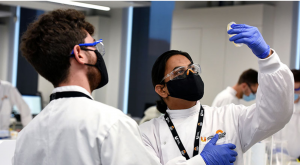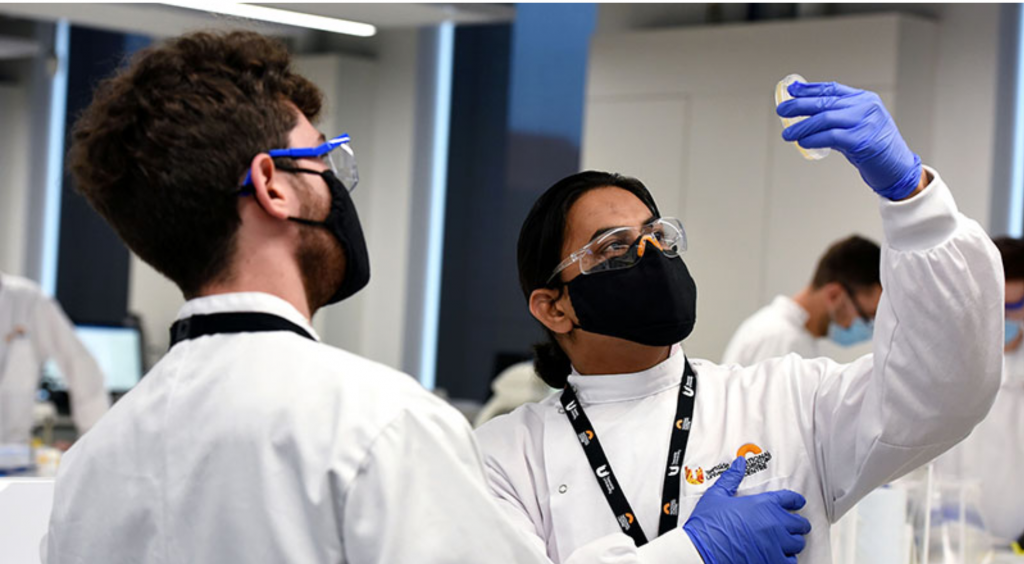 Bimingham City University UKRI Newton Fund project to boost emergency nursing provision in the Zambia amidst Covid-19 pandemic
Bimingham City University UKRI Newton Fund project to boost emergency nursing provision in the Zambia amidst Covid-19 pandemic
Academics at Birmingham City University were recently awarded £173,000 from the UK Research and Innovation (UKRI) Newton Fund, funding projects across the globe to support communities hit by the coronavirus. The project will see nurse academics and researchers work alongside nurses, local healthcare workers and officials to increase provision for trauma and emergency care within both Zambia’s hospitals and communities, to help the country cope with the strain on services caused by the Covid-19 pandemic. Working alongside Zambia’s Ministry of Health, Lusaka College of Nursing and Midwifery, Ndola College of Nursing and other local partners, the project will provide the education and training to leave a legacy of growth in trauma and emergency nursing skills and expertise across the country to help enhance service provision. A series of Covid-19 workshops throughout the country will help the nursing workforce gain the knowledge needed to extend their clinical practice, and meet the changing health care needs as funding and resources are urgently diverted to help deal with the pressure of the pandemic. The project will help nurses deal with Covid-19 related health issues such, while continuing to respond to other communicable and non-communicable diseases through their augmented and strengthened competence, while maintaining nursing capacity within the healthcare service.

Teesside University will support the manufacture of a Teesside vaccine by building the skills capacity of the region’s life science industry. The university’s National Horizons Centre will lead the work to develop the skills capacity within the Stockton-on-Tees region, working in partnership with industry delivering expertise, facilities and training potential to upskill the vaccine manufacturing workforce.
Anglia Ruskin University (ARU)- New test can detect COVID-19 in 20 minutes
ARU’s Professor Stephen Bustin, with colleagues ar Chelmsford hospital, have developed a robust, reliable assay, or test, for COVID-19 which returns results in less than 20 minutes. The test, called Cov2-ID, detects three viral targets, making it more reliable than other tests that look at just one, and was 100% accurate in almost 30 patient samples taken. The test also has the potential to detect viral load, which is the amount of the virus present in each patient. The research has been published within the journal Nature Scientific Reports.
The University of Greenwich have developed drug treatments targetting fatal cytokine storm symptom of Covid-19.
Dr Mike Leach has developed compounds, known as UoG-alpha and UoG-beta, that can inhibit the multiple cytokine proteins that can cause death by respiratory collapse, following Covid 19 infection. These compounds can be used within a drug therapy to prevent our immune system from disabling the body’s lung function during a cytokine storm; one of the contributing factors in Covid-19 deaths. This treatment could potentially also help protect cancer and organ transplant patients.
Oxford Brookes University develop vaccine
Research has been conducted through their spinout company, Oxford Expression Technologies Ltd, to develop a Covid-19 vaccine. Awarded a grant by Innovate UK to work in partnership with Vaxine Pty Ltd. Covax-19® is a vaccine based on production of recombinant spike protein manufactured in insect cells and the Innovate UK grant will enable OET experts to use their technology to help Vaxine to improve the yield and scale of production.
Kingston University research into communicating with BAME communities
The Faculty of Business and Social Science’s Dr Tushna Vandrevala, received award funding from the National Institute for Health Research. Her project is studying how to improve health communication strategies to mitigate the risk of Covid-19 among UK black, Asian and minority ethnic communities. Insights will be shared with community leaders and policy makers including NHS England and the National Institute for Health Protection.





